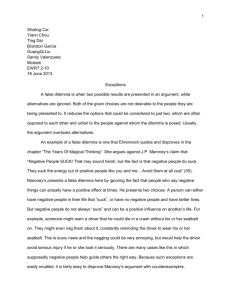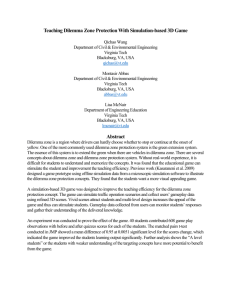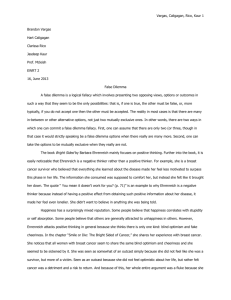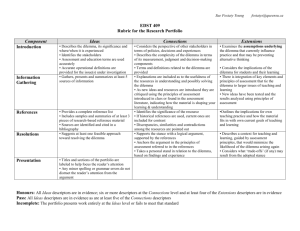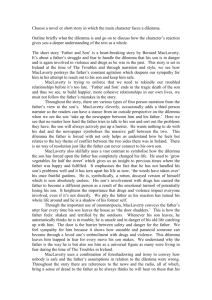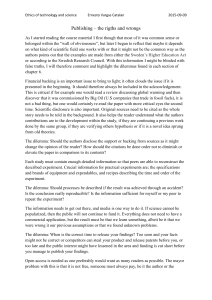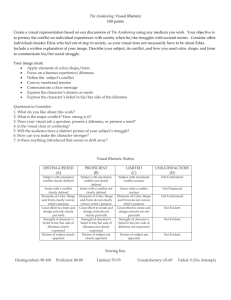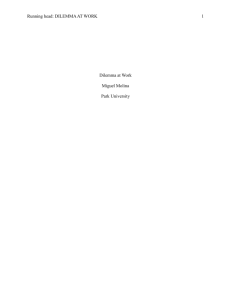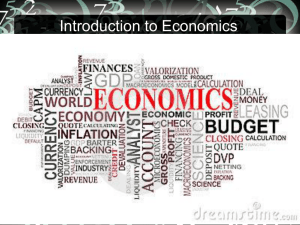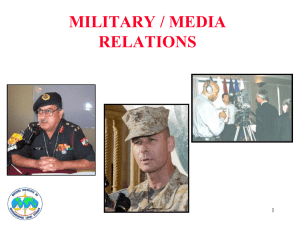False Dilemma B Sec 13
advertisement
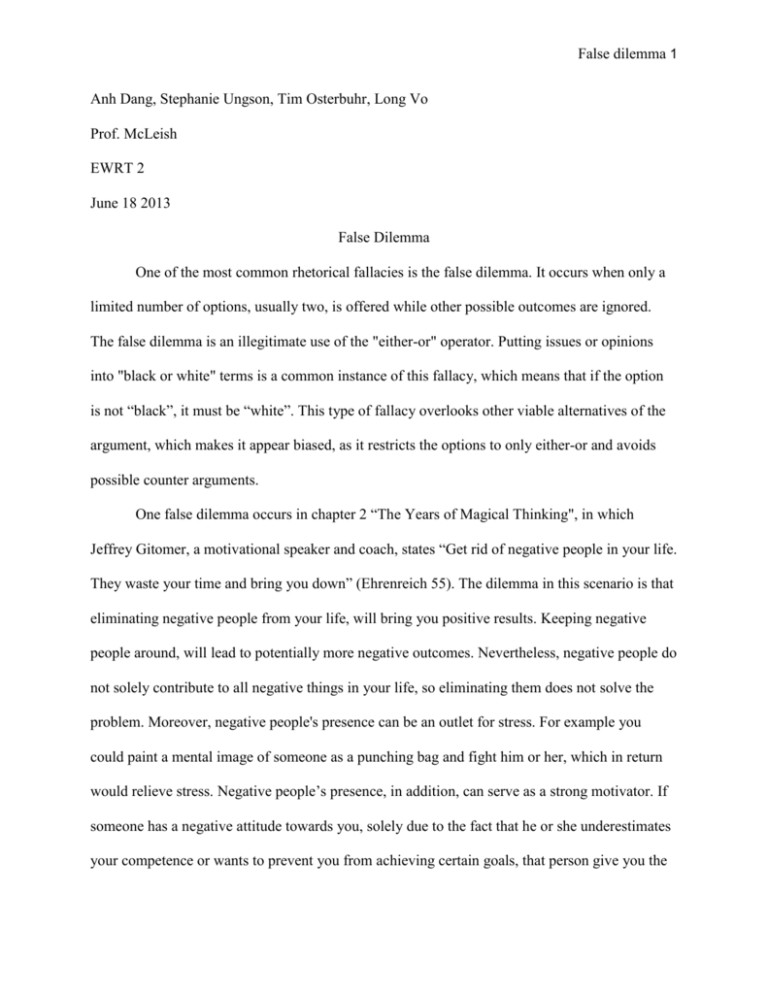
False dilemma 1 Anh Dang, Stephanie Ungson, Tim Osterbuhr, Long Vo Prof. McLeish EWRT 2 June 18 2013 False Dilemma One of the most common rhetorical fallacies is the false dilemma. It occurs when only a limited number of options, usually two, is offered while other possible outcomes are ignored. The false dilemma is an illegitimate use of the "either-or" operator. Putting issues or opinions into "black or white" terms is a common instance of this fallacy, which means that if the option is not “black”, it must be “white”. This type of fallacy overlooks other viable alternatives of the argument, which makes it appear biased, as it restricts the options to only either-or and avoids possible counter arguments. One false dilemma occurs in chapter 2 “The Years of Magical Thinking", in which Jeffrey Gitomer, a motivational speaker and coach, states “Get rid of negative people in your life. They waste your time and bring you down” (Ehrenreich 55). The dilemma in this scenario is that eliminating negative people from your life, will bring you positive results. Keeping negative people around, will lead to potentially more negative outcomes. Nevertheless, negative people do not solely contribute to all negative things in your life, so eliminating them does not solve the problem. Moreover, negative people's presence can be an outlet for stress. For example you could paint a mental image of someone as a punching bag and fight him or her, which in return would relieve stress. Negative people’s presence, in addition, can serve as a strong motivator. If someone has a negative attitude towards you, solely due to the fact that he or she underestimates your competence or wants to prevent you from achieving certain goals, that person give you the False dilemma 2 motivation to prove him or her wrong. Besides, it is not easy to eliminate negative people from your life. No matter where you go and what you do, there will always be negative people surrounding you. The second false dilemma is from chapter 4 “Motivating Business and the Businesses of Motivation." Zig Ziglar, a frenetic Christian motivator, explains to a group of recently laid off workers “It’s your own fault; don’t blame the system; don’t blame the boss ­– work harder and pray more” (Ehrenreich 115). Ziglar poses a dilemma by describing that an employee is fired, because he or she does not work hard enough. The false dilemma states that if you work hard enough you get to keep your job and if you don’t work hard enough you will be fired. However, working hard does not guarantee keeping one’s job, because there are many alternate factors affecting the company’s decision to fire its employees, such as economic recessions, bankruptcy, low order volume, etc. More importantly, “the system” is the crucial factor of controlling the worker population, so saying “don’t blame the system” definitely overlooks the key factor affecting the decision of firing or hiring employees (Ehrenreich 115). Thus, hard work is not always the crucial factor in determining whether an employee can keep his or her job. In addition, Ziglar suggests his employees pray more. What if the employees are not religious? Are they forced to pray in order to gain their chances of success? Ziglar’s claim overlooks the fact that not everybody prays. Thus, telling employees to pray more along with working harder to keep their jobs only shrugs off the company’s responsibility and puts blame on the employees. [Word Count: 554]

